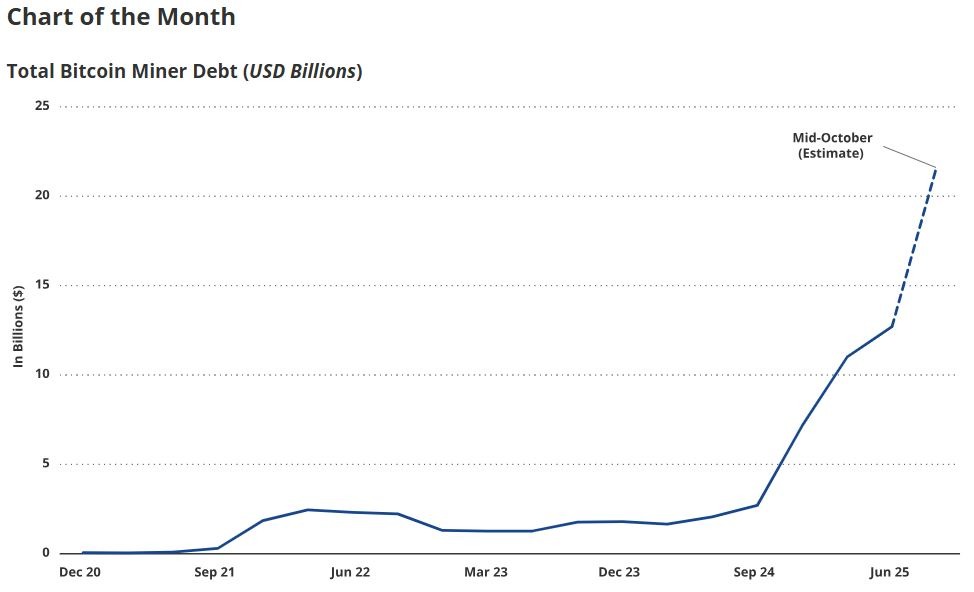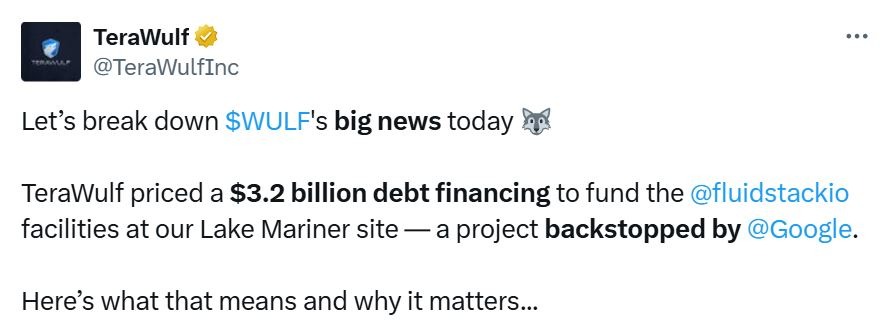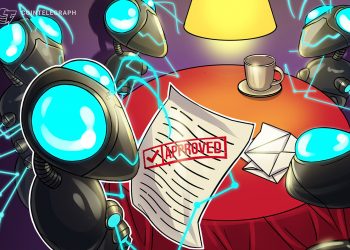Debt among Bitcoin miners has increased from $2.1 billion to $12.7 billion in just 12 months as they race to meet demands for artificial intelligence and Bitcoin production, according to investment giant VanEck.
Without continued investment in the latest machines, a miner’s share of the global hashrate deteriorates, resulting in a reduced share of the daily awarded Bitcoin (BTC), VanEck analyst Nathan Frankovitz and head of digital assets research, Matthew Sigel, said on Wednesday in their October Bitcoin ChainCheck report.
“We refer to this dynamic as the melting ice cube problem. Historically, miners relied on equity markets, not debt, to fund these steep Capex costs.”
“This stems from the fact that miners’ revenues are difficult to underwrite as they rely almost entirely on the price of Bitcoin, which is speculative. Importantly, equity tends to be a more expensive form of capital than debt,” Frankovitz and Sigel added.

Industry publication The Miner Mag estimates the combined debt and convertible-note offerings from 15 public miners were $4.6 billion in Q4 2024, $200 million at the start of 2025, and $1.5 billion in Q2 2025.
Crypto miners expand into AI
A growing number of Bitcoin miners have been diversifying income streams by shifting their energy capacity toward AI and HPC hosting services after the April 2024 halving cut mining rewards to 3.125 Bitcoin, hurting overall profitability.
“In doing so, miners have secured more predictable cash flows backed by multi-year contracts,” Frankovitz and Sigel said.
“The relative predictability of these cash flows has enabled miners to tap into debt markets, diversifying their revenues from Bitcoin’s speculative and cyclical prices and lowering their overall cost of capital.”
In October, Bitfarms closed a $588 million convertible note offering, with the proceeds marked for HPC and AI infrastructure developments in North America.
Fellow miner TeraWulf also announced a $3.2 billion senior secured notes offering to finance a portion of its data center expansion at its Lake Mariner campus in Barker, New York.

Meanwhile, IREN also closed a $1 billion convertible notes offering in October, with some of the funds flagged for general corporate purposes and working capital.
AI pivot is no threat to Bitcoin network
Miners are the backbone of the Bitcoin network. They validate and record all Bitcoin transactions into new blocks. The more miners participate, the higher the hashrate, which helps secure the network.
Related: Bitcoin mining just got easier — but not for long, as hashrate roars back
Frankovitz and Sigel said miners shifting focus to AI and HPC hosting is no threat to the network’s hashrate, because “AI’s priority for electrons is a net benefit to Bitcoin.”
“Bitcoin mining remains an easy way to quickly monetize excess electricity in remote or developing energy markets, effectively subsidizing the development of data centers that are designed with AI, HPC convertibility in mind,” they said.
“In addition, AI inference experiences cyclical demand over the course of the day based on human activity.”
Miners searching for ways to cut costs
At the same time, several miners whom the pair spoke to for the report revealed they are exploring methods to monetize excess electrical capacity when demand for AI services is low.
Frankovitz and Sigel said this could allow the miners to offset or even eliminate costly sources of backup electrical power, such as diesel generators.
“While this remains conceptual, we think it represents a logical next step in the unique synergies between Bitcoin and AI that lead to greater efficiency in the use of capital, both financial and electrical.”
Magazine: Binance shakes up Korea, Morgan Stanley’s security tokens in Japan: Asia Express

























